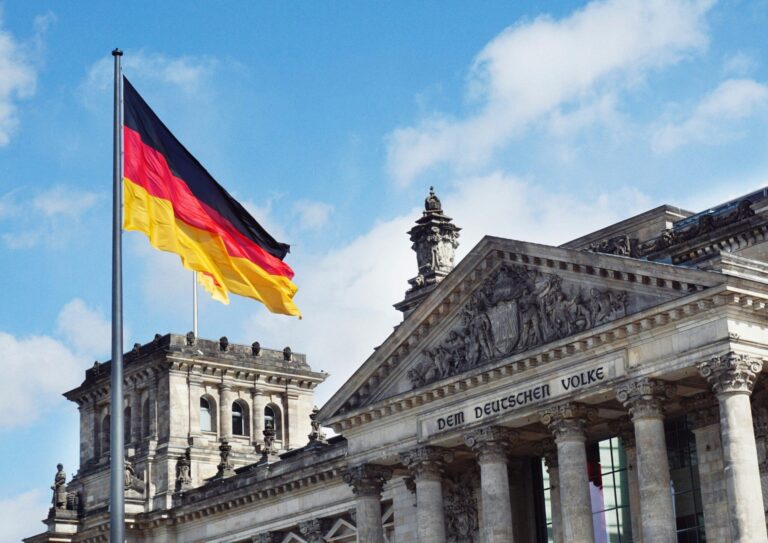Germany has announced plans to extend its border controls as part of an intensified effort to curb irregular migration, officials confirmed on Tuesday. The move comes amid growing concerns over increased arrivals and aims to strengthen security measures along key entry points. This decision marks a continuation of policies intended to manage migration flows more effectively within the European Union, reflecting Berlin’s commitment to balancing humanitarian responsibilities with border protection.
Germany to Maintain Border Controls Amid Rising Migration Pressures
In response to escalating migration flows along its borders, Germany has announced a continuation of temporary border controls. The government cited the need to enhance national security and manage the growing volume of arrivals more effectively. This decision marks a critical step as authorities seek to balance humanitarian commitments with practical border management amid increasing regional instability.
The extension aims to streamline processing and identification procedures, focusing on key transit points primarily along the southern borders. Officials have highlighted several measures to reinforce the existing framework:
- Increased deployment of border guards equipped with advanced surveillance technology.
- Enhanced collaboration with neighboring countries to share intelligence and coordinate responses.
- Implementation of faster screening processes to identify vulnerable individuals and prioritize asylum claims.
| Border Sector | Current Daily Crossings | Additional Personnel Deployed |
|---|---|---|
| Bavarian Border | 1,200 | 150 |
| Saxony Border | 850 | 90 |
| Baden-Württemberg Border | 650 | 70 |
Impact of Extended Border Measures on EU Mobility and Security Policies
The decision to prolong border controls within the Schengen Area marks a significant shift in the European Union’s approach to managing cross-border movement and security. Germany’s move to tighten these measures highlights growing concerns around unchecked migration flows and the potential exploitation of open borders by criminal networks. This prolonged enforcement challenges the foundational EU principle of free movement, prompting member states to reassess their balance between security imperatives and economic mobility.
Key implications of the extended border controls include:
- Heightened surveillance and increased border checks leading to longer transit times.
- Enhanced coordination between national security agencies to tackle human trafficking and illegal entry.
- Potential strain on intra-EU trade and labor mobility, affecting border regions disproportionately.
- Debate over the permanence of such measures and their alignment with EU-wide mobility policies.
| Impact Area | Short-term Effect | Long-term Concern |
|---|---|---|
| Security Cooperation | Improved intelligence sharing | Risk of fragmented policies among states |
| Cross-border Economy | Delays in goods transport | Reduced competitiveness in border regions |
| Freedom of Movement | Increased travel inspections | Potential erosion of Schengen Agreement trust |
Recommendations for Balancing Border Security with Humanitarian Obligations
To ensure security measures do not undermine humanitarian principles, it is crucial that border policies incorporate transparent screening procedures coupled with timely access to asylum processes. Authorities must invest in training border personnel on human rights protocols to prevent potential abuses, while simultaneously enhancing cooperation with international agencies. Implementing technology-driven solutions, such as biometric verification, can streamline migrant identification without compromising dignity or privacy.
Balancing these priorities requires a multi-layered approach, including:
- Collaboration with neighboring countries for coordinated migration management.
- Provision of adequate reception centers with medical and psychological support.
- Regular audits and public reporting to maintain accountability.
- Engagement with civil society organizations to amplify protection efforts.
| Aspect | Security Measure | Humanitarian Action |
|---|---|---|
| Screenings | Biometric data verification | Legal aid & interpreter services |
| Border Personnel | Specialized security training | Human rights sensitivity workshops |
| Facilities | Controlled entry points | Health and psychological care |
The Conclusion
As Germany moves to extend its border controls amid ongoing migration challenges, the government’s crackdown reflects broader concerns over security and immigration management within the European Union. The decision underscores the complex balance between maintaining open borders and addressing the pressures of increased migration flows. Observers will be closely watching how these measures impact both Germany’s domestic policy and its relations with neighboring countries in the coming months.




